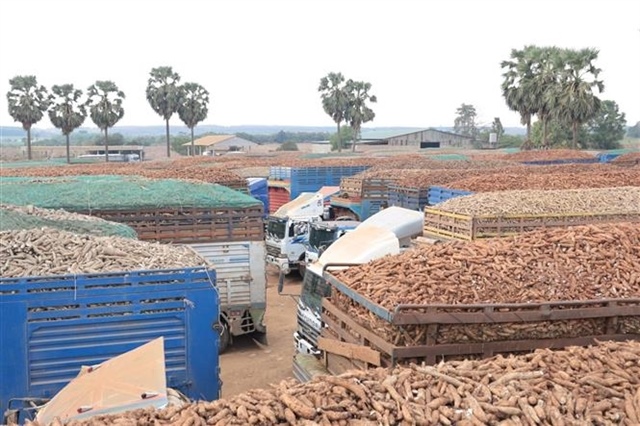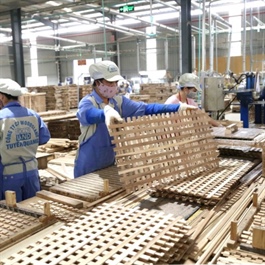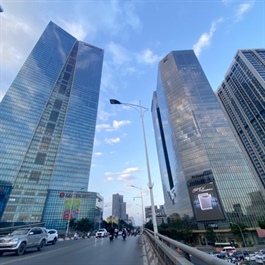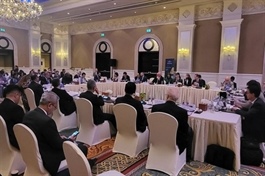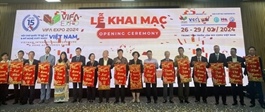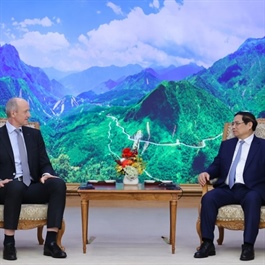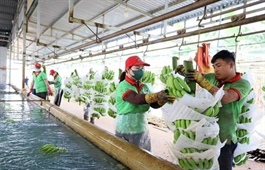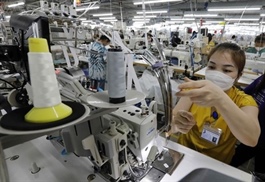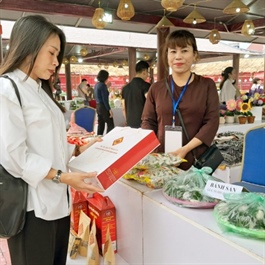Enterprises urged to pay attention to pesticide residues in farm produce when exporting to RoK
Enterprises urged to pay attention to pesticide residues in farm produce when exporting to RoK
The Việt Nam Trade Office in the Republic of Korea has urged enterprises to strictly comply with regulations on pesticide residue levels when exporting farm produce to this market.
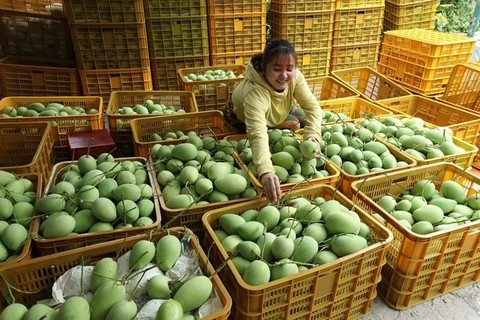
Mango packed in a farm in Đồng Tháp Province. Strict compliance with import market standards is important to export sustainably. — VNA/VNS Photo Nguyễn Văn Trí |
This comes after random inspections carried out by the Korean Ministry of Food and Drug Safety (MFDS) on imported mango products being sold in the Korean market in January, including those from Việt Nam and the Philippines, found pesticide residue levels exceeding allowed levels.
Vietnamese mango packed in 5kg bags were found to contain permethrin, an active ingredient used to eliminate bugs and insects.
MFDS has recalled mango products exported by a company in Việt Nam. After the recall announcement in January 22, no more shipments of Việt Nam’s mangos were detected to have residue levels higher than standards.
Experts said that Việt Nam’s mangos had residue levels higher than the allowable threshold because they were grown on land that has not been cleaned of pesticides, and are grown in multiple locations, making it difficult to control the entire growing, harvesting and steam processing.
Vietnamese authorities need to promote information dissemination and provide early warning for exporters.
According to the trade office, the Republic of Korea imports around 25,000 tonnes mangos worth US$110 million each year, mainly from Peru and Thailand.
Việt Nam’s mango export to this market increased from $7.9 million in 2022 to $9.9 million in 2023.
In 2023, frozen chili of Việt Nam sold in the Korean market were also recalled by MFDS due to residue level exceeding the allowable threshold.
The trade office urged Vietnamese farm produce exporters to strictly comply with Korea’s regulations when exporting to this market to build trust and tap the potential provided by the bilateral trade agreement (VKFTA), the Regional Comprehensive Economic Partnership (RCEP) and the ASEAN – Korea FTA (AKFTA) to promote trade.
The trend of simple, instant, easy-to-cook and easy-to-eat food is increasing in the Korean market in recent years, along with the rise of products that are good for health, organic and green, according to the trade office.
Bilateral trade between Việt Nam and the Republic of Korea reached $76 billion in 2023, a drop of 12.2 per cent from 2022.





